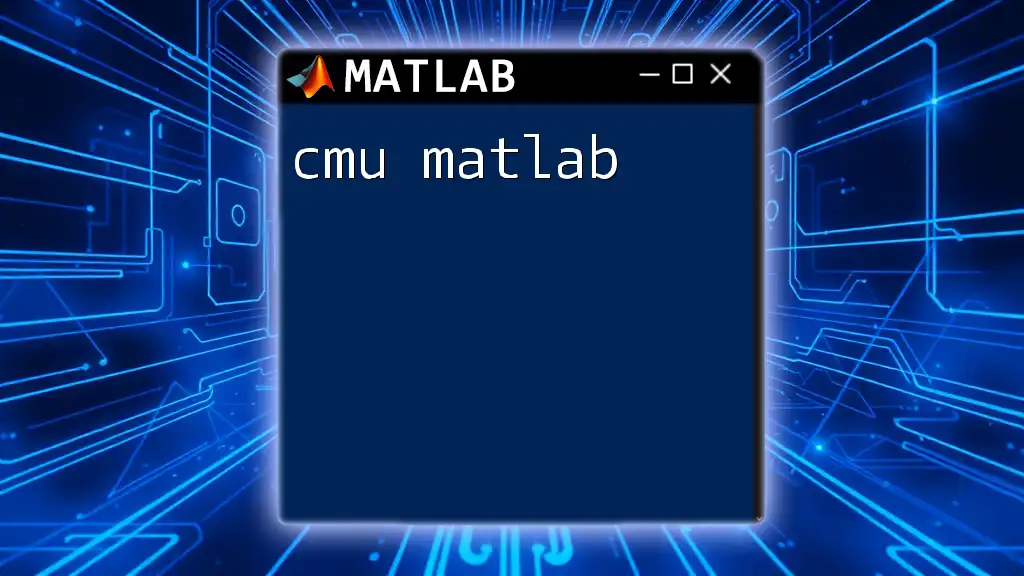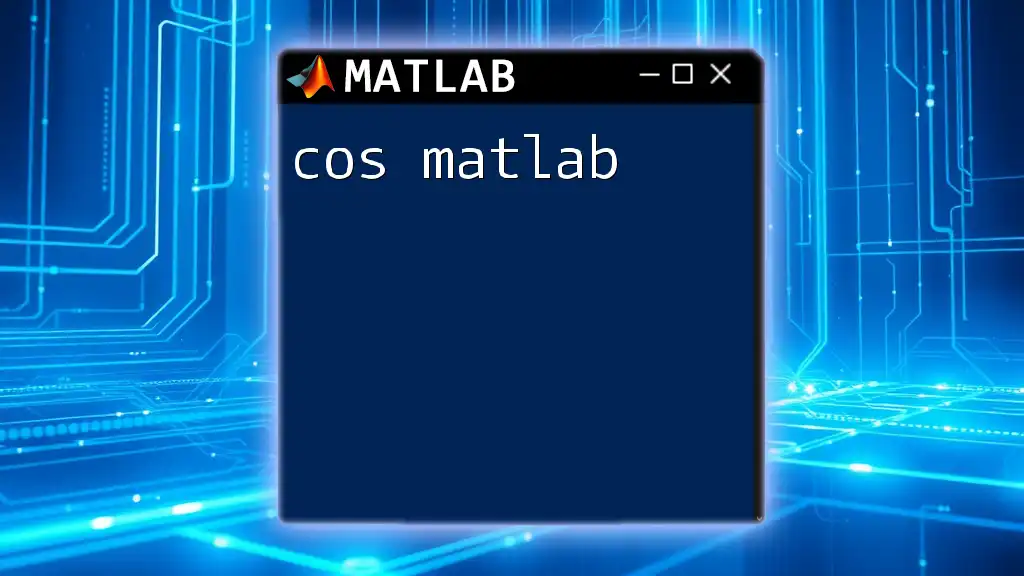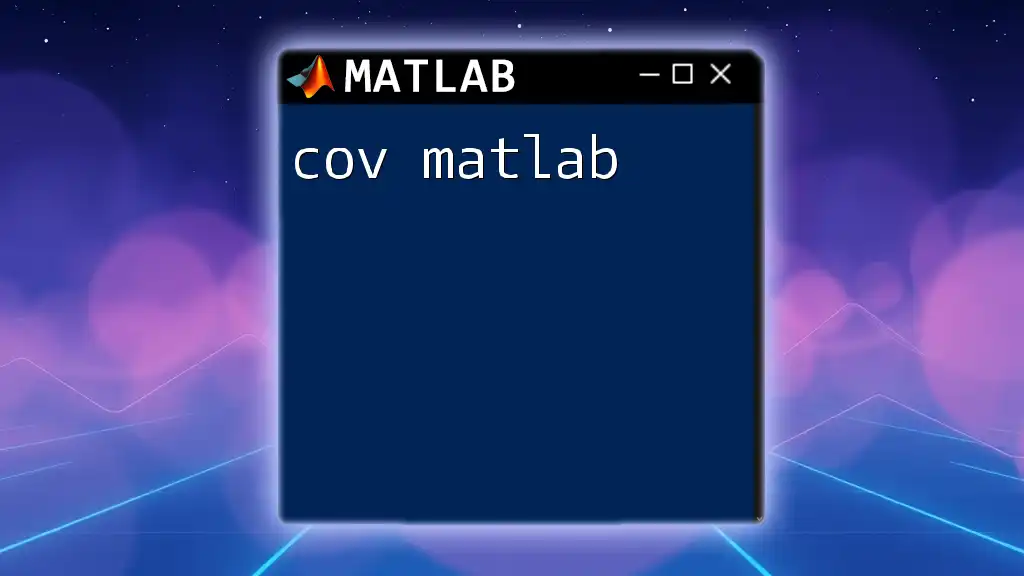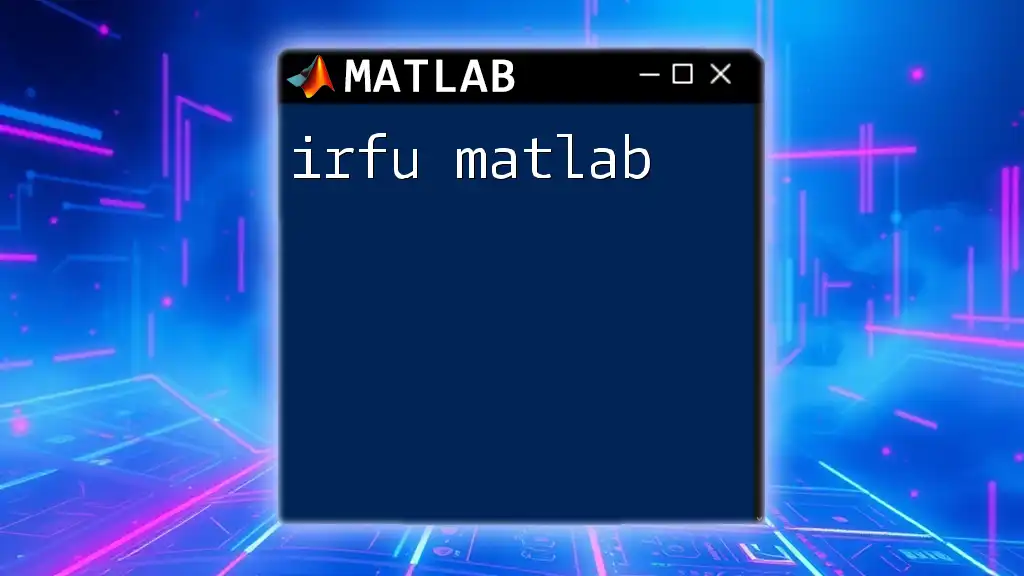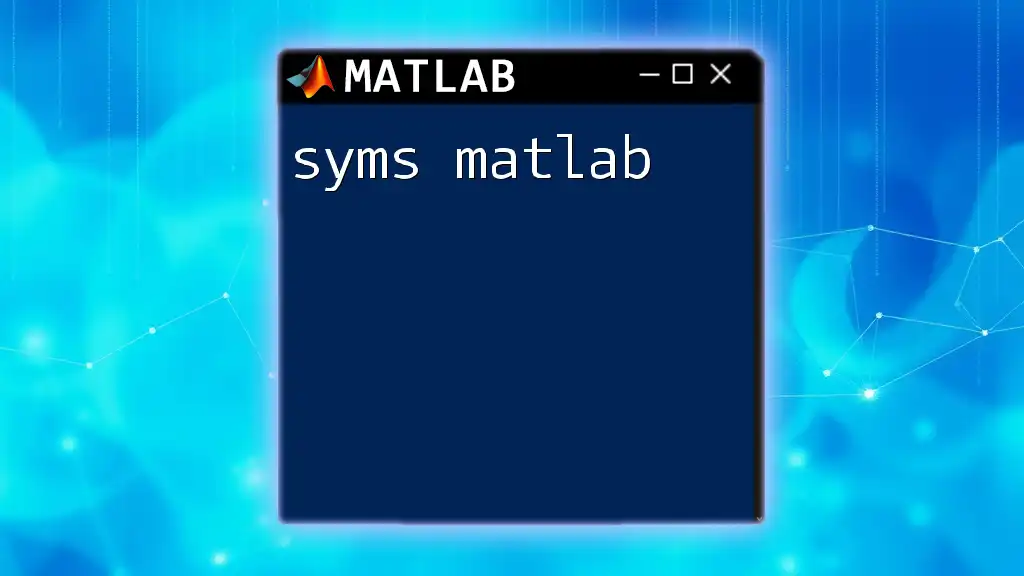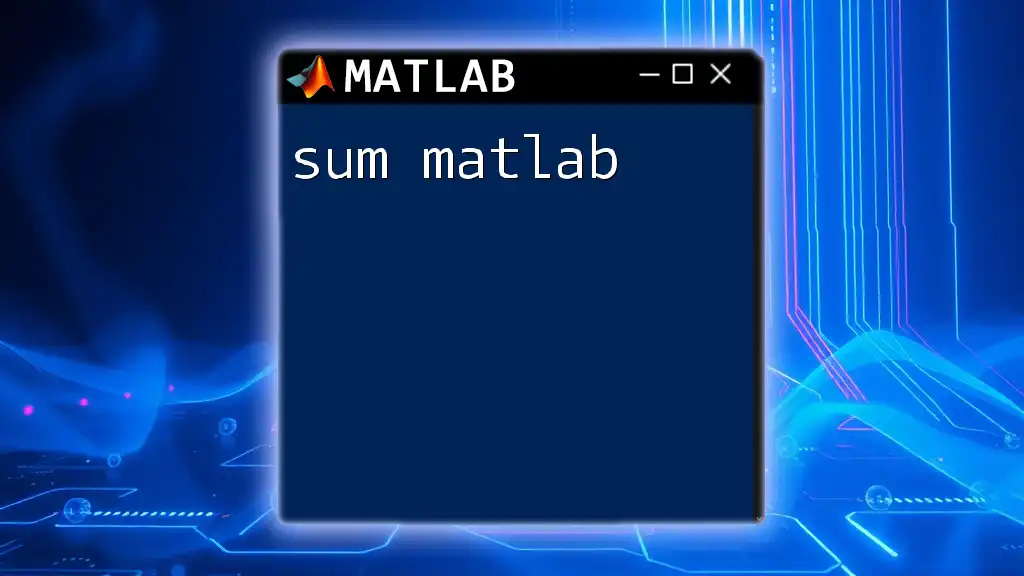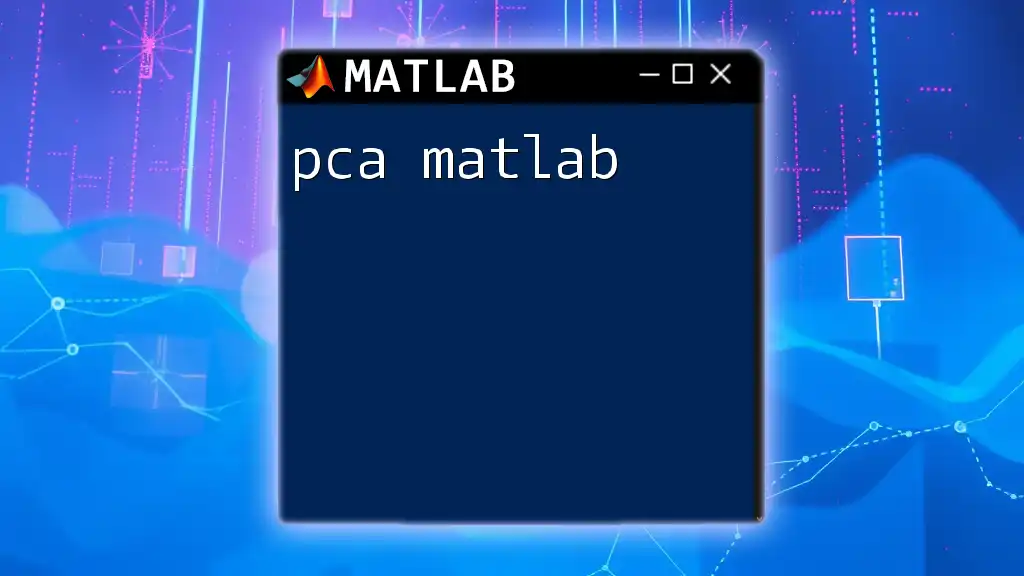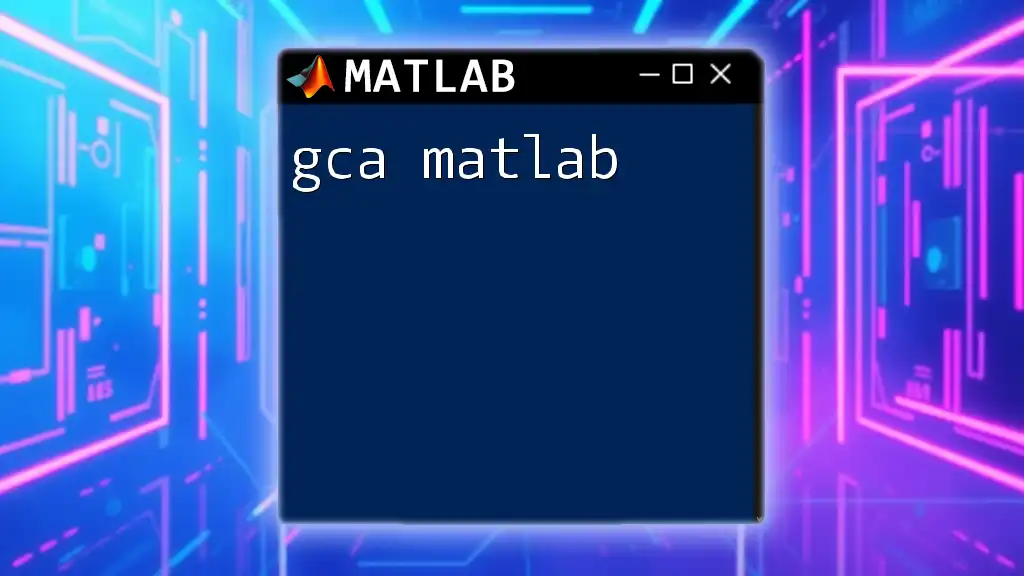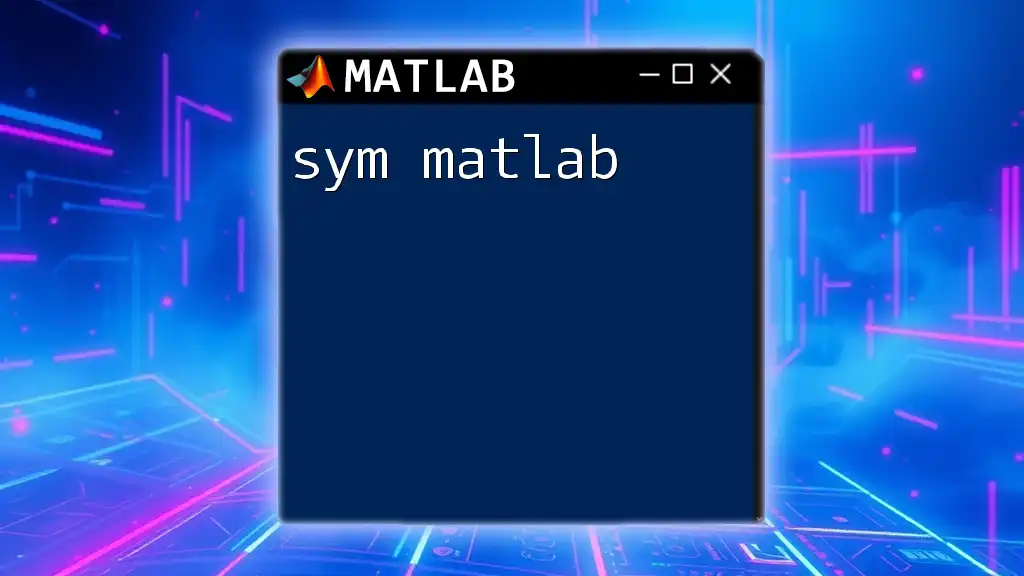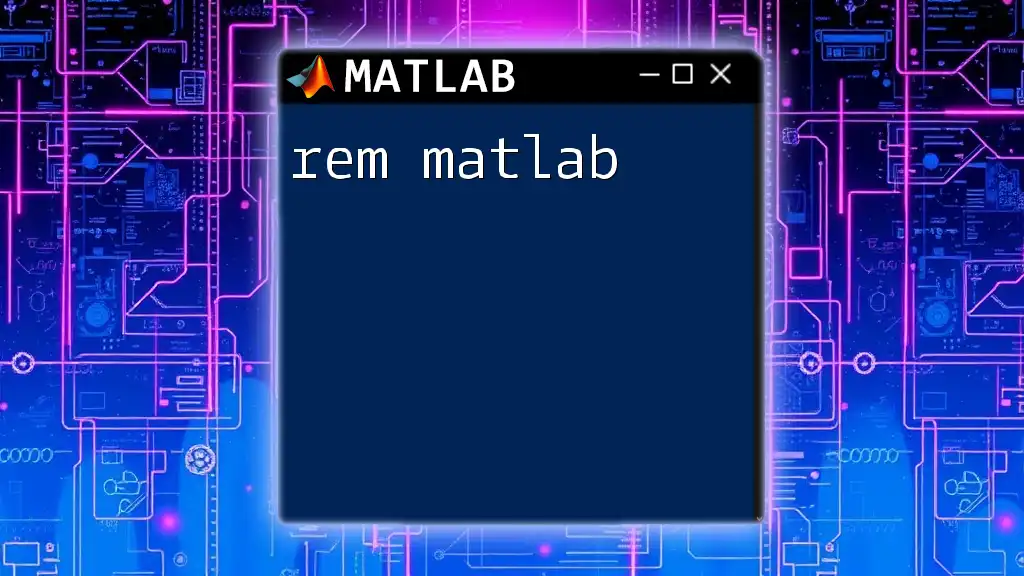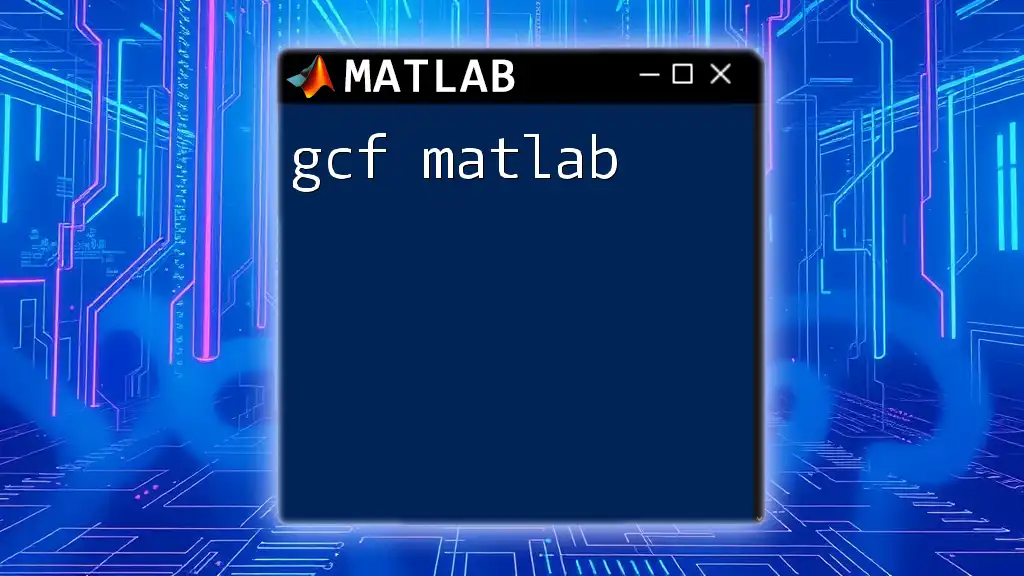CMU MATLAB refers to MATLAB resources and tutorials typically found at Carnegie Mellon University, aimed at helping students and professionals quickly grasp essential MATLAB commands.
Here's a basic example of a MATLAB command for plotting a sine wave:
x = 0:0.1:10; % Create an array from 0 to 10 with an increment of 0.1
y = sin(x); % Calculate the sine of each element in x
plot(x, y); % Plot the sine wave
title('Sine Wave'); % Add a title to the plot
xlabel('X-axis'); % Label the x-axis
ylabel('Y-axis'); % Label the y-axis
Understanding MATLAB
What is MATLAB?
MATLAB, short for Matrix Laboratory, is a high-performance programming environment primarily used for mathematical computations, data analysis, visualization, and algorithm development. Its extensive capabilities make it indispensable across various fields, from engineering to finance.
Key features that highlight MATLAB's versatility include:
- High-level Programming Language: MATLAB provides a user-friendly syntax that abstracts complex operations, allowing users to focus on solving problems rather than getting bogged down in detailed programming constructs.
- Interactive Environment: Users can execute commands in real-time and instantly see results, which greatly enhances experimentation and learning.
- Built-in Graphics Capabilities: MATLAB excels at visualization, offering a robust set of tools to create both 2D and 3D plots, making data interpretation straightforward and insightful.
Why Choose MATLAB?
The decision to learn CMU MATLAB can significantly influence both academic and professional trajectories.
Industry Applications: MATLAB is widely used in various industries such as engineering, data science, and machine learning. Its robust toolboxes cater to the specific needs of practitioners, providing ready-to-use functions and algorithms.
Educational Benefits: Many universities, including CMU, leverage MATLAB to teach complex concepts in STEM fields. By mastering MATLAB, students develop transferable skills that prepare them for careers in engineering, research, and technology.
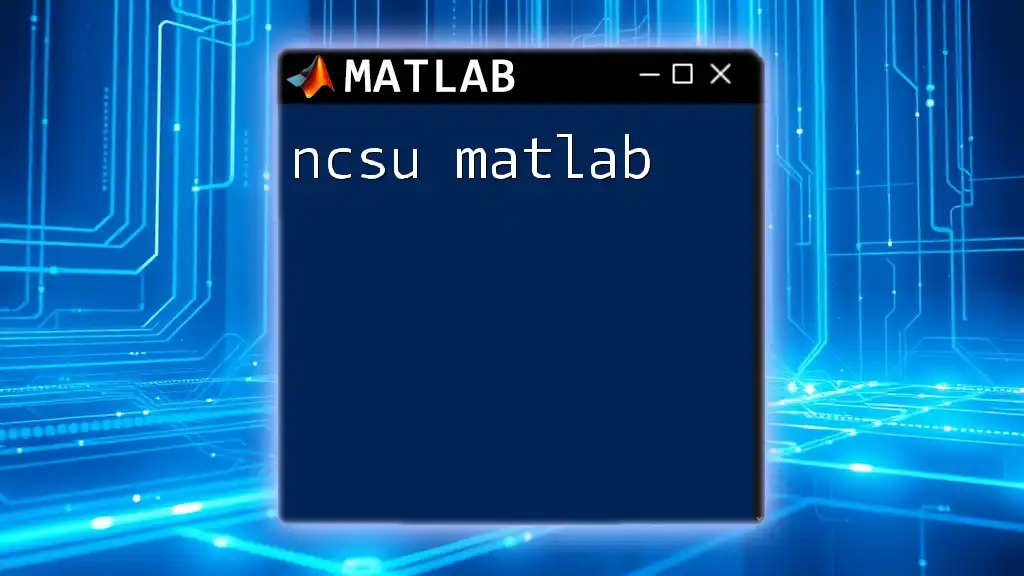
Getting Started with CMU MATLAB
Setting Up Your MATLAB Environment
To dive into CMU MATLAB, the first step involves setting up your environment.
Installation Process:
- Visit the MATLAB official website and create an account if you do not have one.
- Follow the guided steps to download and install MATLAB on your machine. Be sure to verify the installation process as it can differ based on your operating system.
CMU-Specific Resources: Carnegie Mellon University ensures its students have access to MATLAB licenses. Students can check the CMU website or contact their IT department for detailed instructions on how to access MATLAB for free or at a reduced cost.
MATLAB Interface and Toolboxes
Familiarization with the MATLAB interface is crucial for efficient usage.
Navigating the MATLAB Interface: After installation, you'll encounter the MATLAB Desktop, which includes essential components:
- Command Window: Where you type commands and see outputs immediately.
- Workspace: Displays variables currently in memory which allows for easy tracking of data.
- Editor: Used for writing scripts and functions; supports debugging features and syntax highlighting.
Essential Toolboxes for CMU Students: MATLAB includes various toolboxes tailor-made for different applications. Notably:
- Signal Processing Toolbox: Ideal for students in electrical engineering.
- Image Processing Toolbox: Useful for those engaging in computer vision projects.
- Statistics and Machine Learning Toolbox: Supports data analysis, a critical skill across multiple disciplines.
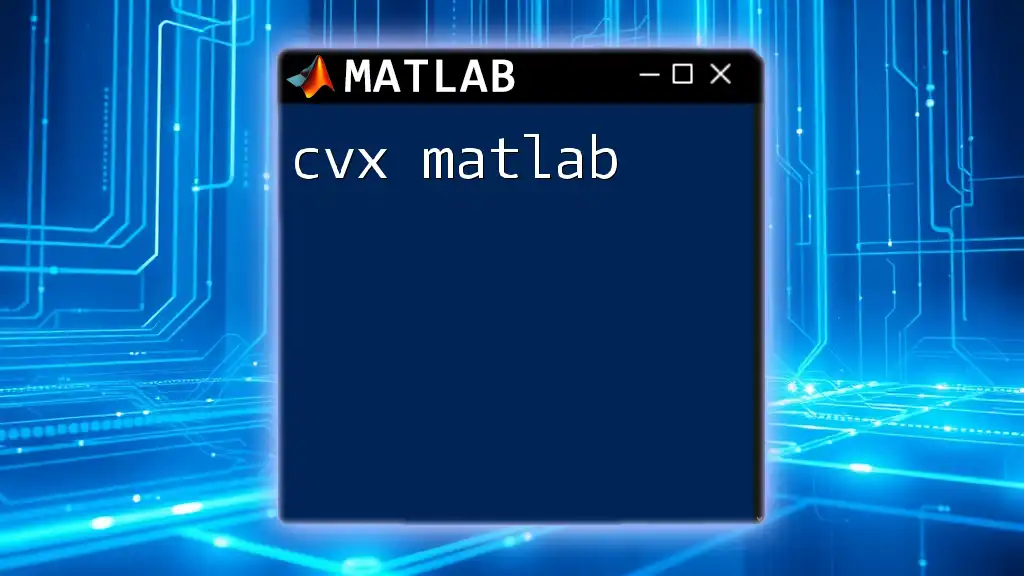
Core MATLAB Commands and Functions
Basic Commands
Starting your journey with CMU MATLAB involves understanding fundamental commands.
Creating Variables: Creating and manipulating variables is straightforward. For example:
a = 5;
b = [1, 2, 3, 4]; % Row vector
c = [1; 2; 3; 4]; % Column vector
This simplified syntax allows you to store and utilize data effectively.
Arithmetic Operations: MATLAB supports various arithmetic operations seamlessly. Perform calculations directly on scalars, vectors, and matrices. Here's a basic example:
A = [1, 2; 3, 4];
B = [5, 6; 7, 8];
C = A + B; % Element-wise addition
This yields:
C = [6, 8; 10, 12]
Advanced Commands
Programming Constructs
Understanding programming constructs expands MATLAB's capabilities beyond simple computations.
Control Flow Statements: Utilize conditional logic and loops for decision-making and iterations. For example:
if a > 0
disp('A is positive');
else
disp('A is non-positive');
end
For loops help iterate over a set of values:
for i = 1:5
disp(i);
end
Functions and Scripts: MATLAB allows users to define custom functions to encapsulate repetitive tasks. Here’s how to define a simple function:
function y = square(x)
y = x^2;
end
Scripts, in contrast, do not accept inputs or return values, making them effective for sequence execution.
Visualization in MATLAB
Plotting Data
Visual representation of data is crucial for understanding and interpreting results.
Basic Graphs: Creating simple plots requires only a few commands. For instance, to graph a sine wave:
x = 0:0.1:10;
y = sin(x);
plot(x, y);
title('Sine Wave');
xlabel('X-axis');
ylabel('Y-axis');
This command set effectively visualizes sine values over a specified range.
Advanced Visualization Techniques: MATLAB’s capabilities extend to 3D visualizations. Consider creating a surface plot:
[X, Y] = meshgrid(-5:0.5:5, -5:0.5:5);
Z = X.^2 + Y.^2;
surf(X, Y, Z);
title('3D Surface Plot');
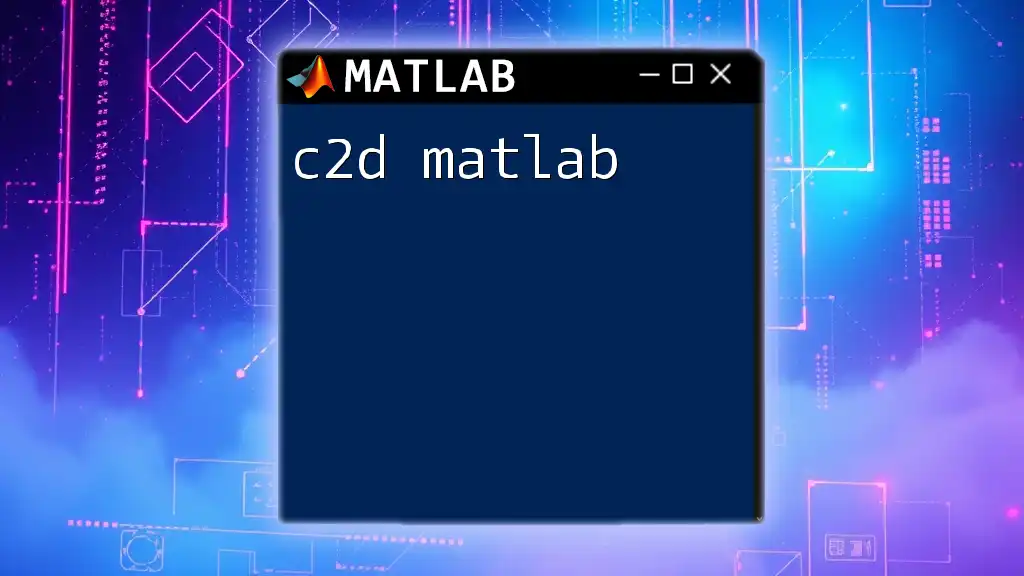
Practical Applications for CMU Students
Case Studies from CMU
CMU students exemplify how mastery of MATLAB translates into innovative projects and research initiatives. Numerous projects leverage MATLAB for complex simulations and data analysis.
Internships and Job Readiness
Employers often seek candidates adept in MATLAB, as it reflects problem-solving prowess and analytical thinking. Proficiency in this environment can enhance your employability within competitive fields.
Workshops and Resources at CMU
Learning opportunities abound at CMU.
On-Campus Workshops: CMU offers regular workshops focused on MATLAB, catering to newcomers and advanced users alike. Participate to hone your skills and network with peers.
Online Resources: Supplement your learning with numerous online tutorials, videos, and forums. MATLAB's extensive documentation is a valuable resource for self-study.
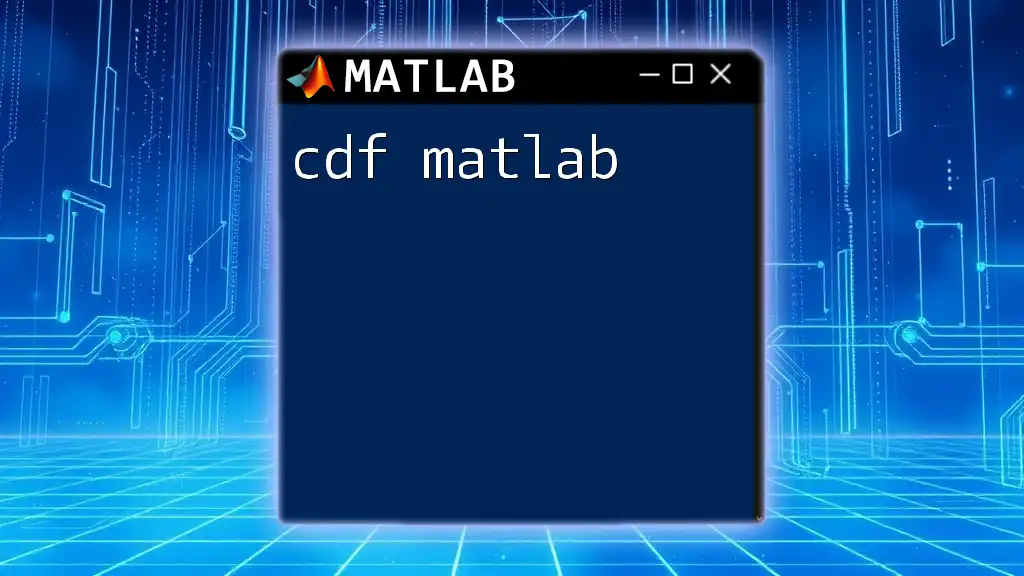
Common Issues and Troubleshooting
FAQ about CMU MATLAB
Students often encounter challenges, particularly with installations and coding errors.
Installation Problems: If installation issues arise, double-check system requirements and permissions. The CMU IT department can provide guidance or troubleshoot common problems.
Common Errors in MATLAB Code: Errors such as "Index exceeds matrix dimensions" typically result from accessing matrix elements incorrectly. Carefully review your index values to resolve these issues.
Best Practices
Follow best coding practices in CMU MATLAB for efficient programming.
Optimizing MATLAB Code: Avoid unnecessary loops. Instead, leverage matrix operations whenever possible, as they are optimized within MATLAB.
Documentation and Code Comments: Document your code extensively. Using comments judiciously not only aids your understanding but also facilitates collaboration with others who may work with your scripts in the future.
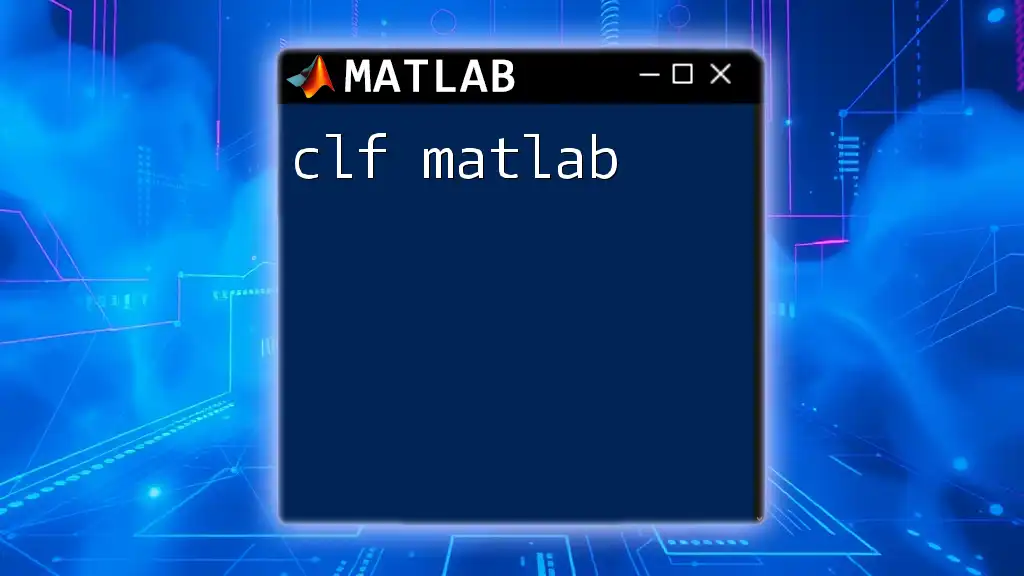
Conclusion
Learning CMU MATLAB equips students with invaluable skills that are highly regarded in both academic and professional settings. As you embark on this learning journey, remember the resources available to you through CMU and persist in practicing what you've learned. By continually expanding your knowledge and honing your skills, you'll position yourself for success in your chosen field.
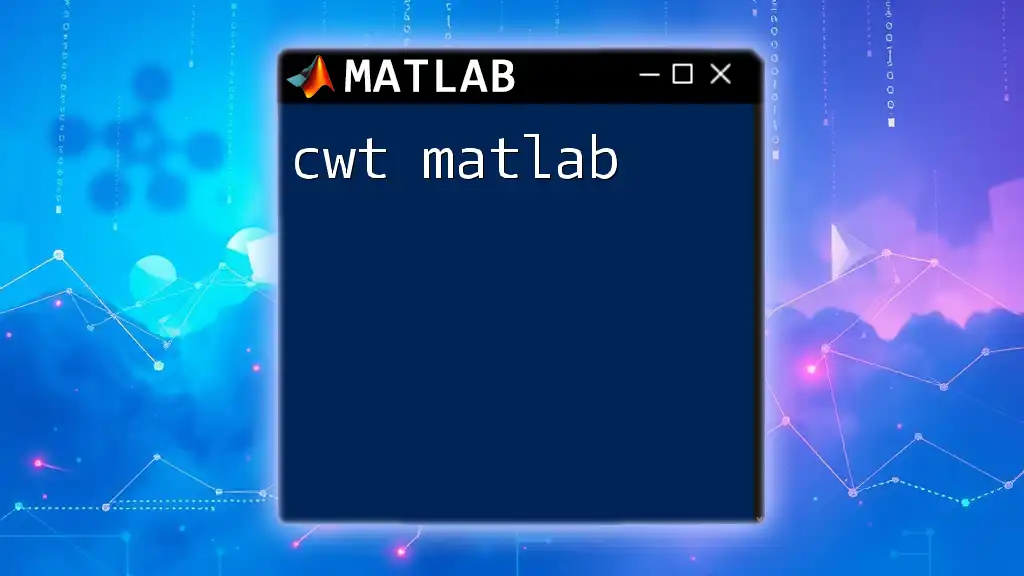
Call to Action
Join our tutorials aimed at helping you master MATLAB quickly and efficiently. Engage with fellow learners and prepare for a future where your MATLAB skills set you apart. Should you have any questions or require assistance, feel free to reach out!

